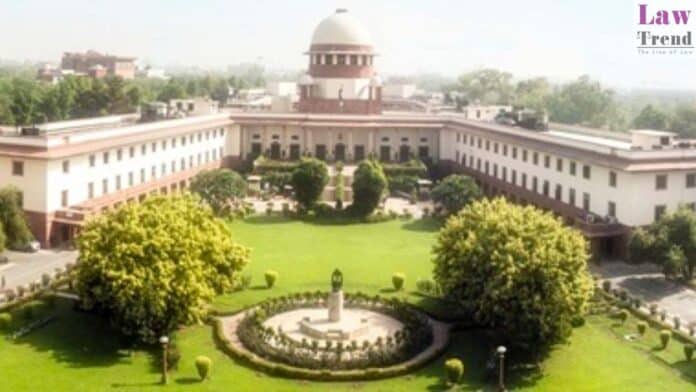The Supreme Court on Tuesday issued a non-bailable warrant (NBW) against a man for his non appearance in suo moto contempt proceedings initiated against him.
The top court had initiated the proceedings against Upendra Nath Dalai in August last year for failing to deposit a cost of Rs 1 lakh for filing a “publicity interest litigation”.
During the proceedings Tuesday, a bench of justices C T Ravikumar and Rajesh Bindal noted that Dalai did not appear, despite issuance of a bailable warrant on the last date of hearing.
The apex court issued the non-bailable warrant to be executed through Balasore Superintendent of Police to enable the physical presence of Dalai on February 13, the next date of hearing.
Observing that India is a secular country and everybody has a right to their religion, the top court on December 5, 2022 had dismissed a PIL seeking to declare late religious figure Sri Sri Thakur Anukul Chandra as ‘Paramatma’.
It had imposed a cost of Rs 1 lakh on the petitioner for filing a “publicity interest litigation”.
As the petitioner started to read from his petition, the bench had said, “Suno hum ye lecture sunne ke liye nahi aaye hain (Listen, we are not here to listen to your lecture). Is this a public interest litigation? Aisa kaise ho sakta hai? Jisko jo manna hai wo mane. Apni country me sabko religious adhikar hai. Hum kaise keh sakte hain ki particular sect ko him maane.(How can this be possible? Everybody is free to follow his or her religion. How can we ask people to follow a particular religion).
“If you want you can consider him as ‘Paramatma’ (supreme being). Why enforce it on others?” the bench had observed.
The top court was hearing a plea filed by Dalai seeking to declare Chandra as ‘Paramatma’.
While dismissing the plea, the apex court had said in its order,”India is a secular country and the petitioner cannot be permitted to pray that the citizens of India may accept Sri Sri Thakur Anukul Chandra as ‘Paramatma’. This is not a genuine public interest litigation at all and it seems to be publicity interest litigation which deserves to be dismissed with costs.”
Chandra was born on September 14, 1888 in Pabna in Bangladesh.




